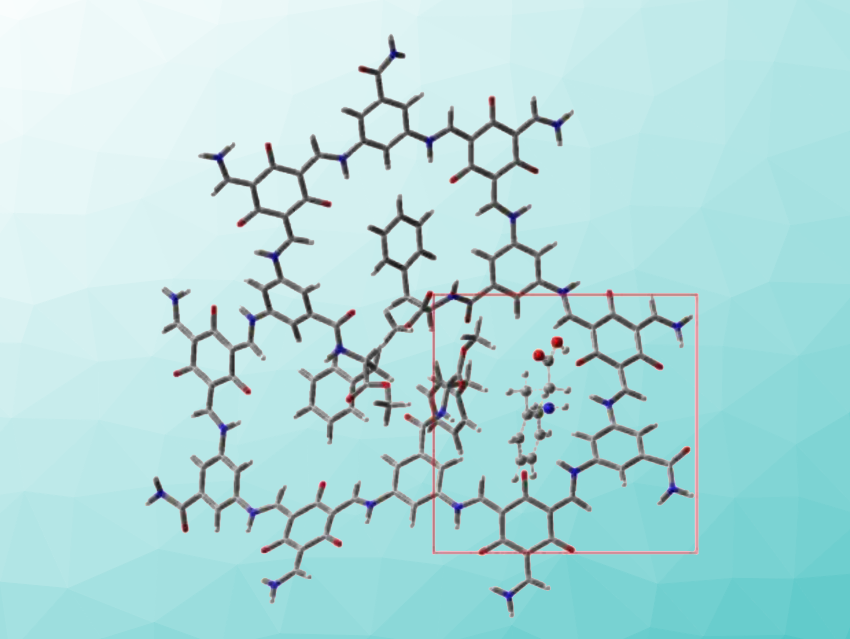Covalent organic frameworks (COFs) are crystalline porous organic materials connected by covalent bonds. They can be useful, e.g., in gas adsorption/separation, sensing, drug delivery, or catalysis. Incorporating chiral molecules into COFs with uniformly ordered pores results in chiral COFs, which are promising candidates for enantioseparation. However, the direct synthesis of chiral COFs from chiral monomers can be challenging.
Yuzhang Zhu, Jian Jin, Soochow University, Suzhou, China, and colleagues have developed a homochiral COF nanochannel membrane that can be used for the enantioseparation of chiral amino acids. The team prepared the COF via a Schiff-base condensation reaction between 1,3,5-triformylphloroglucinol and a chiral amine precursor that was functionalized with an L-phenylalanine methyl ester to introduce the desired chirality. The chiral COF was combined with a porous polysulfone (PSF) substrate to create a usable membrane.
The membrane showed exceptional enantioselectivity for the separation of racemic phenylalanine, resulting in an enantiomeric excess value reaching 99.4 %. The researchers attribute this to the uniform distribution of chiral recognition sites and a good size matching between the material and the target molecule (see picture). The membrane was stable when reused for several cycles. Overall, the work shows the promise of chiral membranes for enantiomer separation with high selectivity.
- A Chiral COFs Membrane for Enantioselective Amino Acid Separation,
Jian Jin, Narmadha Manoranjan, Wangxi Fang, Yuzhang Zhu,
Angew. Chem. Int. Ed. 2024.
https://doi.org/10.1002/anie.202417088




